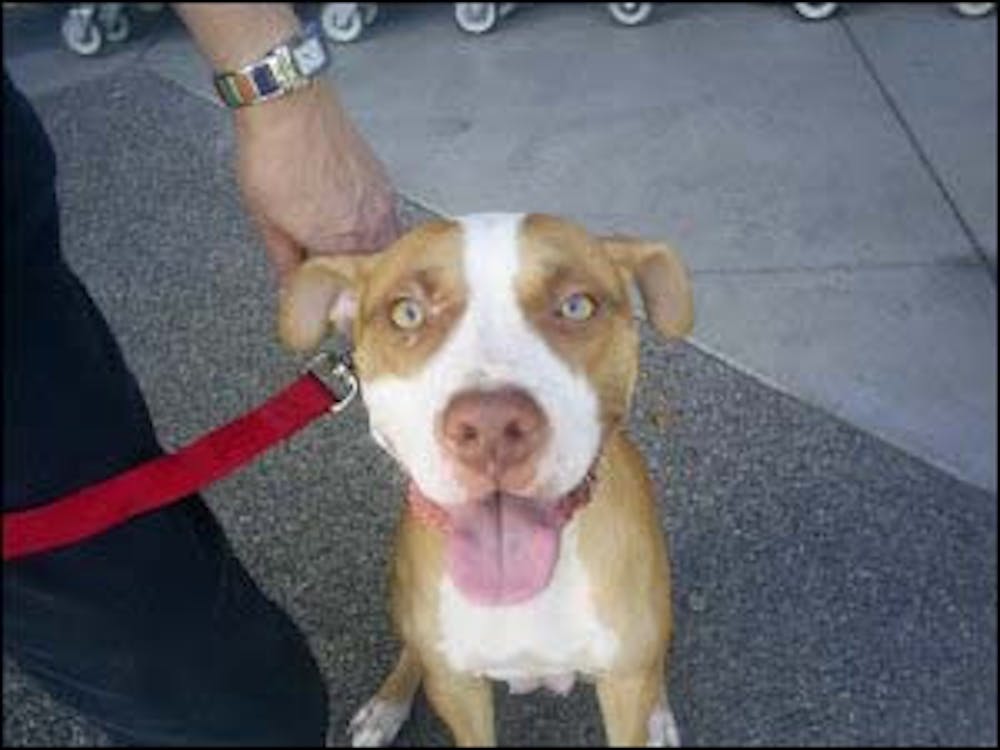The plight of a local animal shelter is only the tip of an iceberg of problems that exist for domesticated animals, according to an ASU animal rights group.
Due to funding issues, the Glendale-based Robin Hood Animal Rescue faces foreclosure of its two Valley properties, a situation that caught the attention of an ASU club that urges people to stand up for animal rights.
“There’s an infinite amount of ways to help,” said Jessica Roberts, a public relations senior and spokeswoman for Students Taking Action for Animal Rights. “People can adopt, foster, volunteer at or donate to animal shelters.”
At the Robin Hood shelter, time is limited for its owners to place their pets in homes before the shelter is foreclosed.
Shellie Denne and Robert Spangler, owners of the shelter, have been out of work and therefore unable to keep up funding for the two properties, they said.
Denne was evicted from her property on Tuesday and was forced to move all of her rescued dogs and cats to Spangler’s property.
But Spangler only has until Nov. 5 to find homes for all the pets that aren’t adopted, because he is also facing foreclosure.
The pets that don’t get adopted will be euthanized, something Denne and Spangler said they would regret.
“If we have to put any down, we want to be there with them,” said Denne, who described the personalities of the pets facing euthanasia when the last property is foreclosed. “[Being there when they die] is the least we can do for them.”
The rescue group has had a number of adoptions over the last few weeks, but a lot of animals still need homes, Spangler said.
For more than five years, the owners of Robin Hood Animal Rescue have been rescuing animals off the streets, caring for them and placing them in good homes.
Denne and Spangler said they do not discriminate which breeds of dogs they take in, like a lot of other adoption groups do.
“We’ve been told that we rescue the garbage dogs,” Denne said.
But she said these so-called garbage dogs are actually well-behaved and friendly.
“We have three of our dogs in families with children that are either autistic or ADHD, and we think it’s fabulous,” Denne said. “Here’s a dog that somebody thought was of no worth that turned out to be of great worth.”
The foreclosures on the Robin Hood Animal Rescue properties are not the end of the shelter, Spangler said.
“We’re going to continue to do what we do — we just need a place to do it,” he said.
Kirby Mauro, communications junior and vice president of Students Taking Action for Animal Rights, said she thinks the shelter’s situation is extremely unfortunate.
“I hope that at least they can find homes for all of those animals, but it’d be even better if the shelter could get enough funds to stay open,” she said. “If people spayed or neutered their animals, there wouldn’t be this problem, and we wouldn’t have the need for these shelters.”
While she is glad Robin Hood Animal Rescue is getting so much support, people need to focus on what happens to animals daily, Roberts said.
“At Maricopa County Animal Care and Control, 150 animals are put down every day,” she said. “These are not animals with special needs or behavioral problems. We’re to the point now where people feel that animals are disposable.”
Roberts said ASU, as a campus of nearly 70,000 students, is so large that the people within it should be able to make a difference in the lives of animals.
“Adopting pets instead of buying them from special pet stores or breeders helps a lot,” Roberts said.
“As cute as those puppies are in Puppies N Love, they get those puppies from puppy mills,” she said. “[The employees] feed you all this nonsense to get you to buy their puppies, when all they see them as is dollar signs.”
If more people saw the conditions of dog pounds — with rows of dogs wagging their tails excited to see anyone — they would stop paying thousands of dollars for animals from stores, Roberts said.
“They don’t want you to see the fact that animals are being disposed of like trash,” she said.
Reach the reporter at kkfrost@asu.edu.




